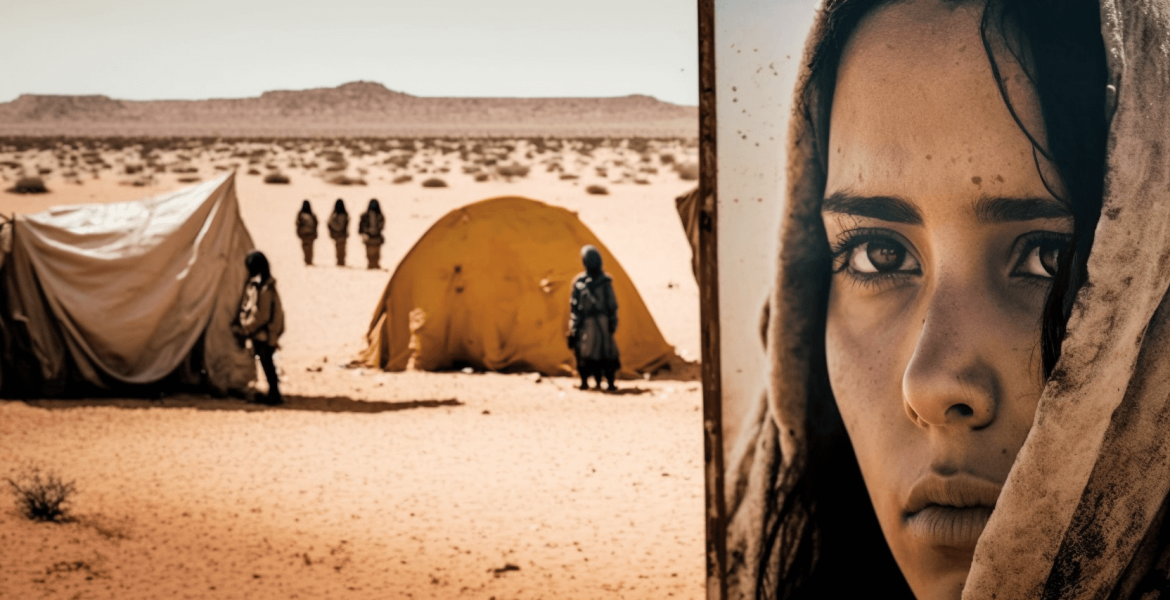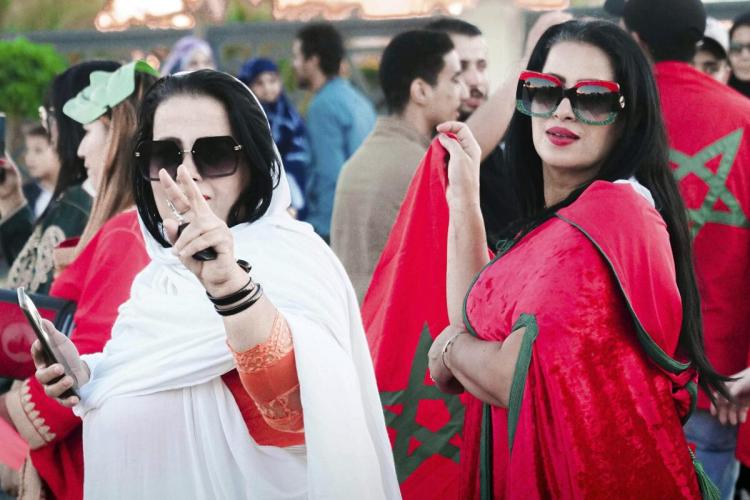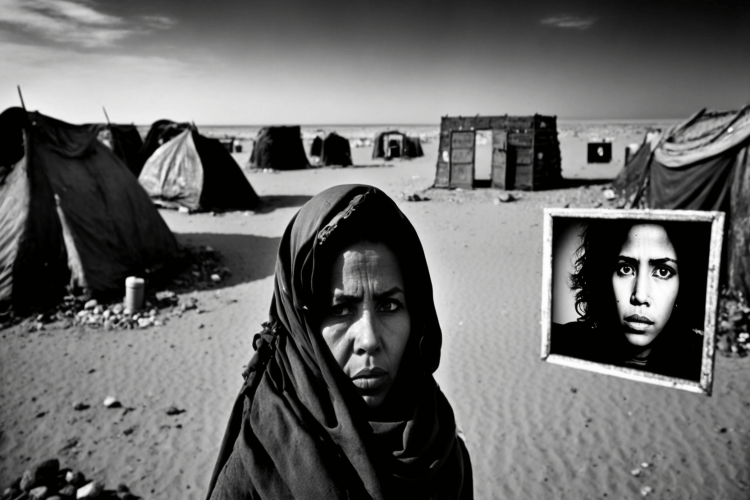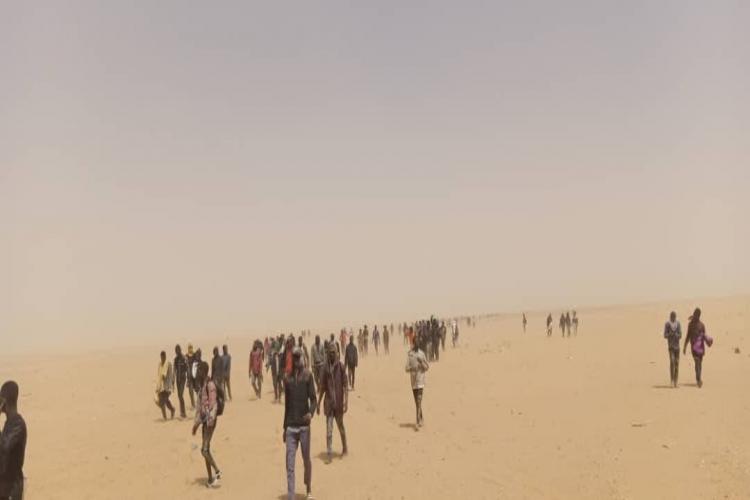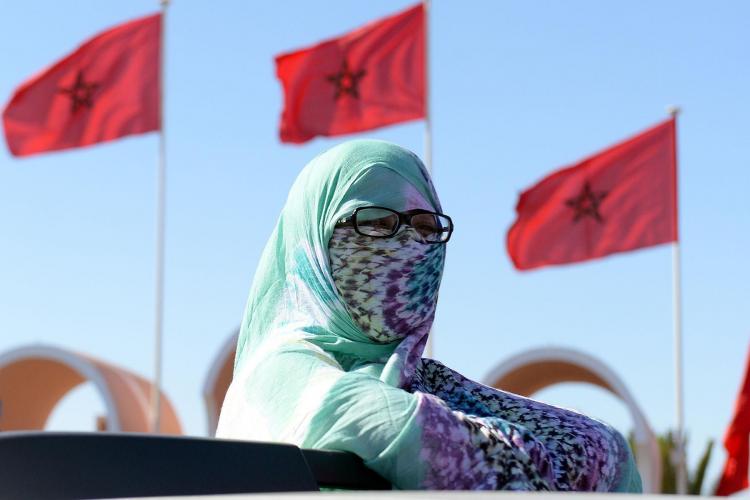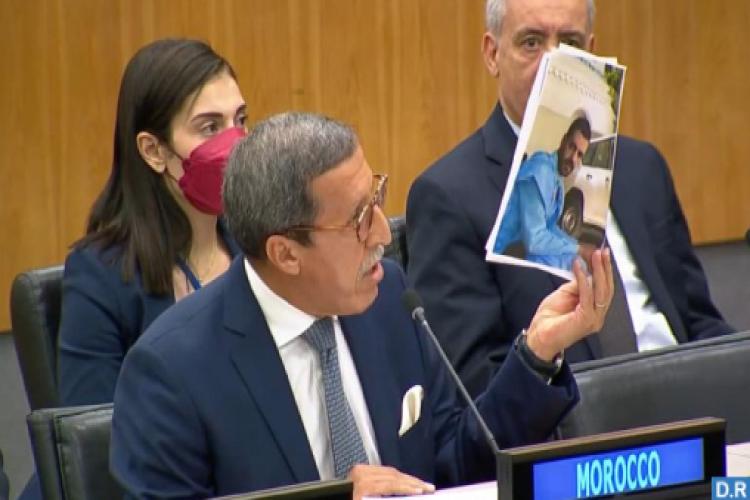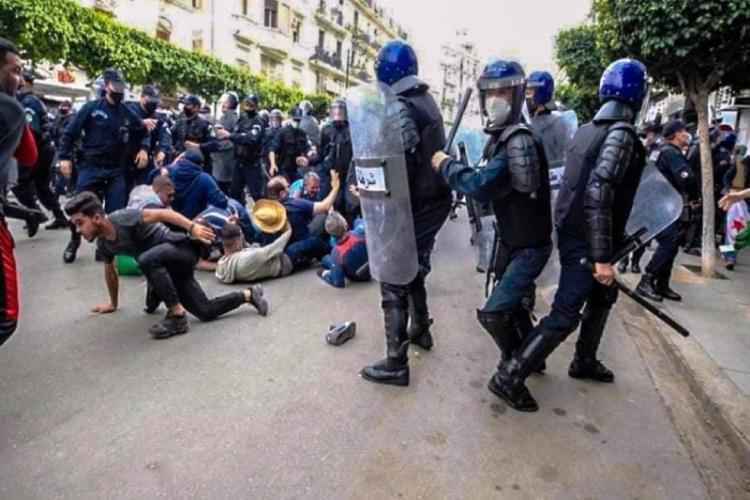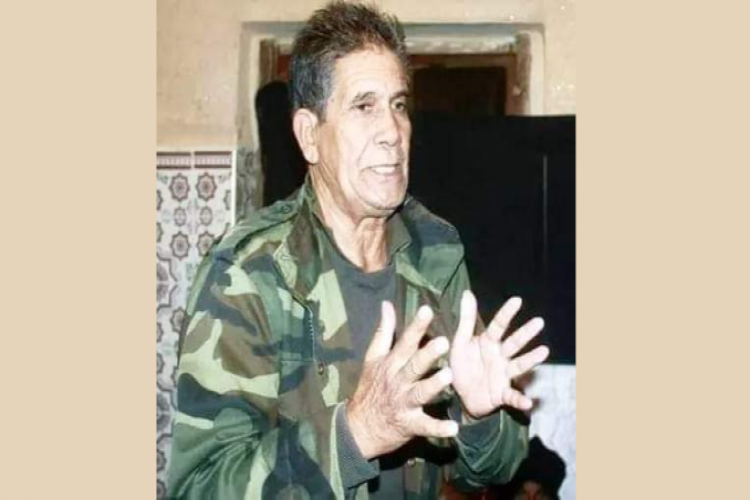An unrecognized crime (1/2): Sexual assaults against Moroccan women in the Polisario camps (study)
History has already documented how the Tindouf camps were established. The Algerian army entered the Saharan provinces at the time of decolonization and the evacuation of Spanish troops, and led thousands of people who were settled in camps in Tindouf to create the myth of refugees who were brainwashed by Algeria.
This population was later reinforced by thousands of people from all backgrounds, which also explains why, despite repeated requests from the UN, it has never been possible to register the inhabitants of the Tindouf camps. History also reports how, on the occasion of these Algerian incursions, the FAR defeated the Algerian army, making 120 prisoners in the two battles of Amgala.
Another tragedy remained unknown: that of the hundreds or thousands of Sahrawi, including Moroccans, abducted and forcibly taken to the Tindouf camps by the Polisario before the construction of the defense belt, where they suffered all kinds of unspeakable crimes.
Below, we reveal the first Moroccan study on this subject. This article will be followed by the enlightening testimony of Captain Ali Najab, a former prisoner of the Polisario.
-oOo-
In the prisons of the Polisario, thousands of Moroccan Sahrawi men and women have been (some still are) incarcerated without trial or charges for years. They are victims of all kinds of violence, ranging from torture to murder, mutilation, and serious medical experiments, all insufficiently publicized crimes.
The few witnesses who have been released or managed to escape describe unspeakable violence. After their release, they are referred to by associations as living skeletons because of the torture they suffered.
Until now, most of the testimonies cited in various studies and articles mainly mentioned the violence exercised on men in these camps. A recent study, based on testimonies from former Moroccan detainees who escaped, including those of five women, confirms that Sahrawi Moroccan women have also been subjected to various abuses and torture, mainly rape, with the Polisario's goal being to increase "its population."
Who are these women? How were they treated in the prisons of the Polisario camps? Have they been victims of human rights violations? What are the consequences? Questions to which the study, carried out by Malika Bensahra and Fatima Amrani of the Sidi Mohamed Ben Abdellah University of Fez, provides answers.
Beyond the scientific nature of the study, one cannot help but be shocked by the revelations made.
Serious medical experiments, torture, and blood sampling up to 12 times a year
During the clashes between the Moroccan army and Polisario troops, many Moroccans were captured and imprisoned in Polisario prisoner camps.
The majority of the prisoners were treated brutally after their capture. They were subjected to physical violence and beaten with an electric cable during interrogations. These violations even caused the death of many detainees. Others lost their minds.
Others were executed simply because they had stolen cigarettes or jars of jam. Confinement was another technique used by the Polisario to torture prisoners. One of them was locked in a tin trunk for an entire year and only came out for an hour a day.
Refusal to perform forced labor was also one of the reasons why the Polisario subjected Moroccan prisoners to severe physical abuse.
Polisario members even forced detainees, who were already suffering from a lack of care and nutritional deficiencies, to donate their blood 5 to 10 times a year, and up to 12 times a year for some. This blood, which was taken without their consent, was intended for residents of the Tindouf camps, whether military or civilian.
Young women, captured and violated
In addition to men, Sahrawi Moroccan women have also been subjected to violence in the camps of the Polisario. They have experienced violations of child rights when they were very young, and violations of human rights as adults.
According to testimonies of men and women who managed to escape from the camps, gathered by the authors of the study, the women who were held captive were civilians. They were young. Female children were also captured.
"I was captured as a child. I was with my aunt and Polisario militiamen attacked our residential area. They took children and I was among them," recounts one of the former detainees.
These women were kidnapped for many reasons. The fertility and youth of their victims were the main criteria sought by the Polisario.
Marital status did not matter for these women. "Among the many detainees, there were girls, women aged 25 and 26, and married women with their children. Polisario troops know the inhabitants in the southern provinces of Morocco. They know each family and each tribe. They looted the houses of the inhabitants and captured their victims," relates another former detainee.
The length of detention also differs, and this difference depends on when the detainees were kidnapped. Some detainees have been imprisoned for 18 to 25 years, compared to 5 to 7 years for others. Those captured in the early years, after 1975, are those who suffer the longest detention compared to other prisoners. The reason is that the Sahara issue was a new problem and therefore any violation could not be easily detected or revealed.
"Any woman can be a victim of sexual abuse by any man"
The detention of women is motivated by the desire to increase the "population" of the Polisario. This observation was affirmed by the majority of the witnesses surveyed.
Thus, many Moroccans working in the civil service were abducted during raids to exert pressure on the Moroccan government. Moroccan girls and women, on the other hand, were captured to contribute to reproduction.
"Any woman can be a victim of sexual abuse by any man, even if she is married. They want (Polisario members, ed.) women to become pregnant and give birth to as many children as possible," reports a former detainee.
The study also cites the example of a young married woman who was heading towards Tan-Tan, and whose vehicle was attacked. She was taken to the Polisario camps. This woman was married at the time of her kidnapping, but was forced to remarry another resident of Tindouf in order to give birth to more children.
"The men in the Polisario camps have the right to enter any house or tent and have sexual relations with the woman inside, whether she is single, married, widowed or divorced. Any man has sexual access to any of these women, regardless of their marital status," confirms another witness speaking about the life of captives. "If a woman refuses or denounces this sexual assault, she will be sentenced to death."
In some camps, the children born there are transferred to a so-called "education" shelter. They are therefore likely to adhere to, believe, and defend the positions of the people raising them, against the positions and values of their own families.
Men were also deprived of food, sleep, and rest. "We were beaten, and we did not have enough food. We worked all day building houses, they did not allow us to sleep," reveals one of those who managed to escape. "We carried out tasks even in summer, when the heat reached 50 °C, or sometimes more." Sometimes they were forced to work at night, in addition to the day.
Psychological and Physical Troubles
These violations have had a significant impact on the detainees, which varies depending on the type of torture they were subjected to.
Many of them suffer from psychological disorders and anxiety. Others suffer from post-traumatic stress. They cannot handle any tension and have difficulty managing any conflict. Some former detainees suffer from sleep disorders and socialization problems.
In addition to psychological troubles, some suffer from physical problems resulting from malnutrition, lack of healthy food, clean water, quality clothing, and bedding.
"We suffered from many diseases related to the heart, stomach, kidneys, and eyes," one former detainee reports. "Due to the lack of hygiene, we saw our clothes move slightly because they were full of lice," adds another.
Women exposed to sexual violence are more likely to develop an inferiority complex and a lack of self-esteem.
All of these detainees require physical and psychological follow-up. This may help them overcome what they experienced in the prisons of the polisario camps, according to the authors.
Médias24

